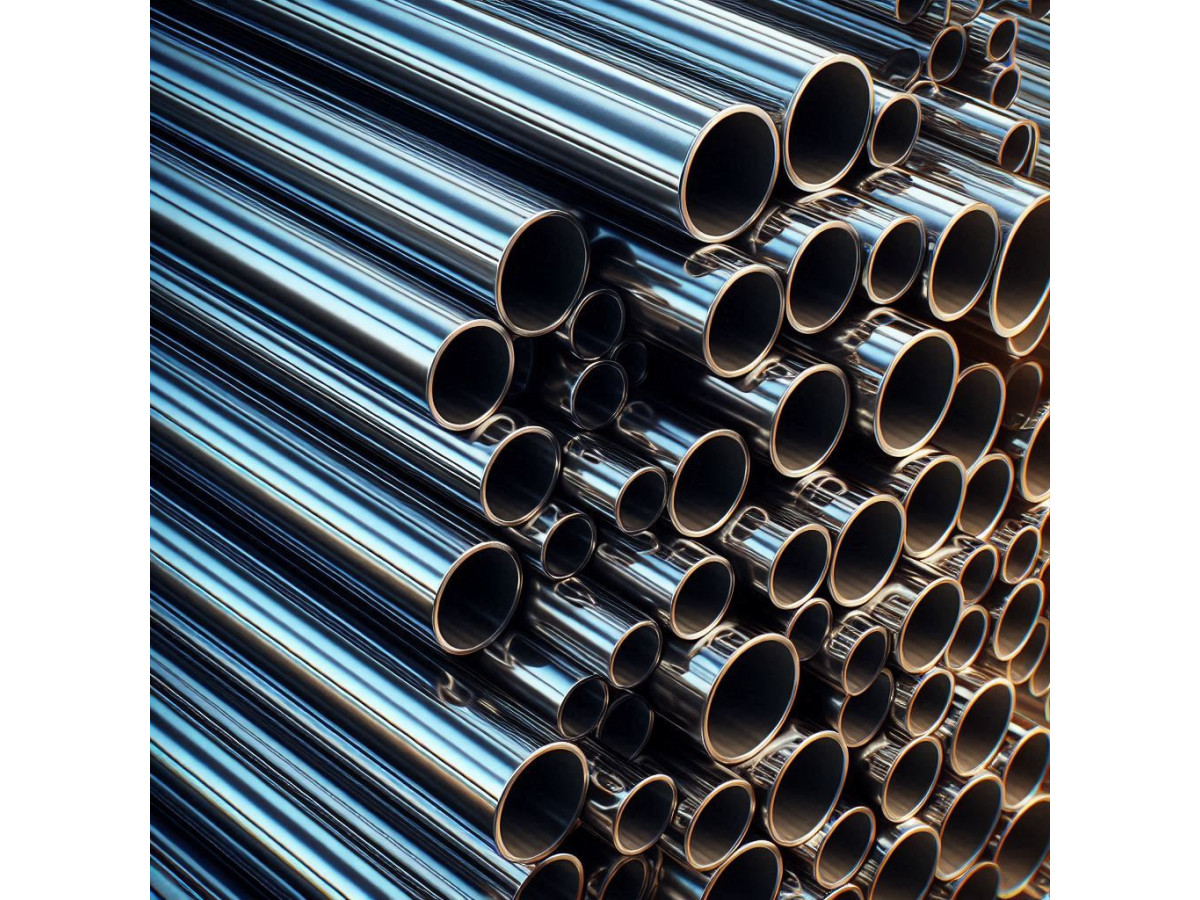Cold Rolled Steel Pipe is a product obtained by cold rolling of a metal sheet or strip. This production method guarantees high accuracy of product geometry, surface quality and corrosion resistance. This represents characteristics that make it a popular choice for various purposes.
Advantages of Cold Rolled Round Pipe
Cold rolled round steel pipe does offer many advantages that make it an attractive choice for a wide range of applications. Importantly, its strength, durability, precise dimensions and geometry, and variety of sizes and wall thicknesses make it an ideal material for a variety of projects.
The strength and stability of cold rolled round steel pipe makes it an ideal choice for durable structures where high reliability and stability are required. Its precise dimensions and geometry facilitate the installation process and ensure reliable connection with other structural elements, which is an important factor for the successful implementation of the project.
A choice of different sizes and wall thicknesses allows you to select the optimal parameters for a specific project, which contributes to its successful completion. The ease of cutting the pipe to the required lengths makes the assembly and installation process more efficient and convenient.
In addition, the aesthetic appearance of round pipes due to their smooth surface makes them attractive design elements for both internal and external structures. Therefore, cold rolled round steel pipe is a versatile and multi-functional material that can be effectively applied in various industries and projects.
How to choose the right steel pipe?
When selecting the right steel pipe, it is important to consider a few key points to ensure it is optimally suited to the requirements of your specific project. It is important to pay attention to the following aspects:
- Type of Steel: Different types of steel have unique properties that determine their application. The choice of steel type depends on operating conditions, load, environmental influences and other factors.
- Geometric parameters: the diameter, wall thickness and shape of the pipe should be determined, taking into account the design features and strength requirements.
- Financial restrictions: The cost of pipe can vary significantly, so it is important to stay within the project budget without compromising on the quality of the material.
- Corrosion resistance: Depending on the operating conditions of the pipe (such as contact with water, chemicals, extreme temperatures), it is necessary to select a steel pipe with appropriate corrosion resistance. This will help prevent premature destruction of the material and increase the service life of the structure.
- Thermal conductivity: In some cases, it is important to consider the thermal conductivity of the pipe material. For example, when designing heating or cooling systems, it is necessary to select steel pipes with certain thermal conductivity characteristics for the system to operate efficiently.
- Impact Resistance: When designing structures subject to shock or vibration, steel pipes with high impact resistance should be selected. This will provide additional protection from damage and increase the overall reliability of the structure.
Contact a construction and metalworking professional for further advice and guidance on selecting the right steel pipe for your project. Consider all of these factors to choose the best solution that suits your needs and requirements.
In what areas are steel pipes used?
Steel pipes have found their application in the industrial and construction sectors. Here are some areas in which steel pipes are in demand:
- Oil and gas industry: steel pipes are used for laying oil and gas pipelines along main pipelines.
- Construction: steel pipes are used for the construction of houses, overpasses, tunnels, in addition for heating systems, air conditioning and ventilation systems.
- Water supply and sewerage: used for laying pipes for drinking water and wastewater in urban and factory water supply and sewerage networks.
- Automotive and railway industry: steel pipes are used for the manufacture of car bodies, trailers, railway cars, as well as for the construction of fences and road signs.
- Automotive industry: steel pipes are used for the manufacture of various parts and systems in the automotive industry, as well as for the manufacture of hydraulic and pneumatic mechanisms.
This is just a small list of areas in which steel pipes are used. Their durability, reliability and versatility make them a popular building material for a variety of industrial and construction purposes!

